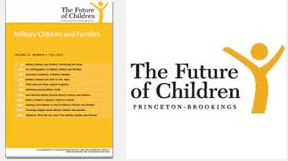Teens from military families are at higher risk for suicide
 Posted by Eddie North-Hager-USC on March 23, 2015
Posted by Eddie North-Hager-USC on March 23, 2015
While the US has increased resources to stem the risk of suicide by soldiers returning from the battlefield, one group may be overlooked: their children.
Teenagers from military families are at greater risk of thinking about, planning, and trying suicide, according to a new study that also finds they are more likely to need medical attention following an attempt.
Nearly 12 percent of military-connected youth in California reported attempting suicide, compared to 7.3 percent of nonmilitary-connected youth. Approximately 24 percent of military-connected youth reported seriously considering suicide compared to 18.1 percent of civilian youth. Military connected youth were at 1.71 more likely to attempt suicide requiring medical treatment than their civilian counterparts.
“Primary health care providers, mental health providers, schools, and other community organizations should work to increase their awareness of the presence of military-connected youth and families that they serve,” researchers write in the paper published in the journal European Child & Adolescent Psychiatry.
“Special consideration should be given for the potential of deployments, relocations, and other adolescent stressors to impact the mental health of military-connected youth.”
“As the nation moves to increase resources for the long-term care of psychological trauma and/or physical injury experienced by veterans and active-duty service persons it is critical that the needs of their children are attended to as well,” says Tamika Gilreath, assistant professor in the School of Social Work at University of Southern California.
“Civilian schools and other community-based youth serving institutions should be aware of both veteran and military-connected youth that they serve and increase resources as needed.”
Data for the study was drawn from the California Healthy Kids Survey, an ongoing survey of 5th, 7th, 9th, and 11th graders administered by WestEd for the California Department of Education.
The survey asks questions about several health-related behaviors and focuses on a sample of 390,028 students in 9th and 11th grade at 1,029 schools who completed the core survey in 2012-2013, as well as 26,142 students in 261 schools who opted to administer a supplementary questionnaire that included questions about additional suicidal behaviors.
Other researchers from USC and from Bar Ilan University in Israel are coauthors of the study.
Source: USC










